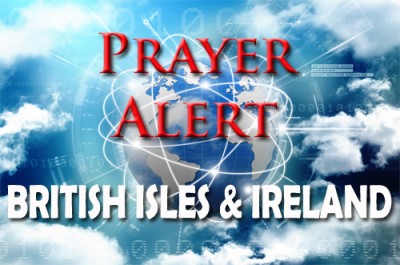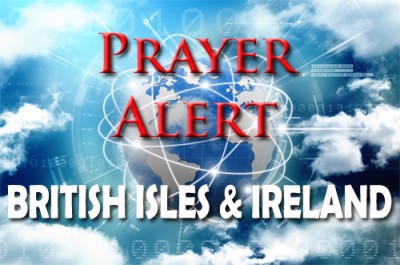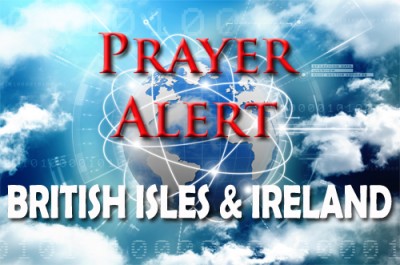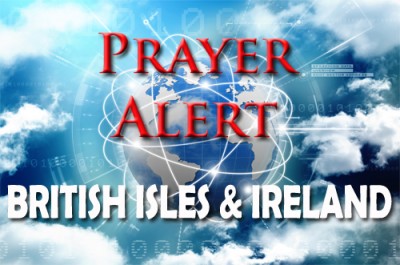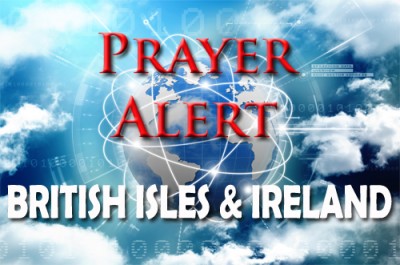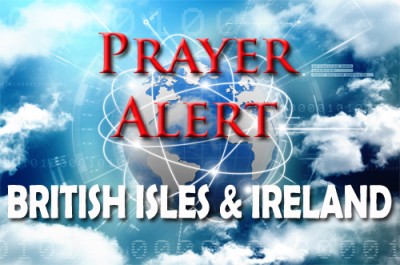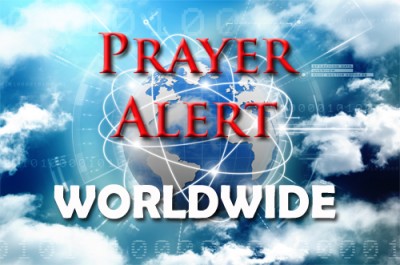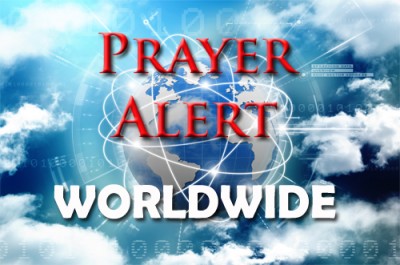A church in Leamington Spa showed the film Life of Brian on 28 May to a packed audience. Father Christopher Wilson screened the controversial film to raise funds. His decision angered churchgoers who say the satirical comedy was 'offensive'. It was branded 'anti-Christian' when it was released. Life of Brian tells the story of a young Jewish man being mistaken as the Messiah. It sparked protests from religious groups and 39 local authorities in the UK banned it when it was released in 1979. The church also staged a fundraising concert called 'Music you don't normally hear on a church organ' (Meat Loaf's Bat out of Hell, Madonna's Like a Prayer, and Vicar in a Tutu by The Smiths).
Britain and corruption
03 Jun 2016Roberto Saviano spent a decade exposing criminal activities of the Italian Mafia, and has lived under police protection since 2006 when he publicly denounced members of a powerful mafia crime syndicate. Last Saturday, flanked by security guards, he made a rare appearance at the Hay Literary Festival. He warned the audience that financial institutions were allowing ‘criminal capitalism’ to thrive through offshore holdings. ‘If I asked you what is the most corrupt place on earth, you might tell me it’s Afghanistan, maybe Greece, Nigeria, or the south of Italy, but I will tell you it’s the UK’, he said. ‘It’s not the bureaucracy, it’s not the police, it’s not the politics but what is corrupt is the financial capital. 90% of owners of capital in London have their headquarters offshore.’
New inquests on Birmingham bombings
03 Jun 2016Fresh inquests into the deaths of 21 people who died in the 1974 Birmingham pub bombings offer an opportunity for the perpetrators to come forward, said Canon Janet Chapman after Birmingham's top coroner ordered them in view of ‘significant’ new information that West Midlands Police missed two potential warnings of the bomb attacks. Canon Chapman belongs to Birmingham Cathedral, which has been holding an annual vigil for the victims of the double bombing, which struck two pubs in 1974. Explaining her hopes for the new inquests, she said, ‘I think it is about discovering more about the truth. It is a desperate situation with the gross miscarriage of justice over forty years ago. As I have worked in the cathedral and have got to know some of the victims of the families, I can see the heartache they carry because they do not know the truth.’
Fire and rescue services' failings
03 Jun 2016In her first major statement since the Home Office took over responsibility for fire and rescue services this year, Theresa May said that lack of diversity and accountability and bullying make reforms necessary. She criticised the services for being 96% white and 95% male, and for condoning a ‘culture of bullying and harassment’ in some parts of England and Wales. In her speech she confirmed her intention to allow elected police and crime commissioners (PCCs) to take over fire and rescue services where a local case to do so is made, and to introduce an independent inspection regime, which she said was currently impossible. Mrs May described a toxic and corrosive culture in some parts of the services, necessitating a programme of reform that was ‘radical and ambitious’.
Special needs children - not enough support
03 Jun 2016Schools in England are struggling to support pupils with special needs or disabilities. A survey of 1,100 school leaders found delays to assessments, insufficient budgets, and cuts in funding to local authorities. The Government says it has increased funding for those with ‘high needs’. There are 1.3 million children in England - 15% of the total - who have special educational needs or disabilities. Of these, 1.1 million are in mainstream schools rather than in special schools. 82% of mainstream schools do not have sufficient funding and budget to provide adequately for pupils with special educational needs. 89% of school leaders believe cuts to local authority services have had a detrimental impact on the support their school can give these pupils. Three-quarters of schools have pupils who have been waiting longer than expected for assessment of special needs or an education, health and care plan. 88% of school leaders think that initial training does not prepare teachers adequately to support pupils with special needs.
Britain's border weak-spots
03 Jun 2016Criminal gangs are using over a dozen small ports and harbours not protected by border officials to smuggle hundreds of migrants into the UK. Europol has identified the following smuggling hotspots: Hull, Immingham, Orford Ness, Harwich, Tilbury, Purfleet, Whitstable, Dover, Newhaven, Chichester, Portsmouth, and Portbury. The Chief Inspector of Borders warned that border officials are not collecting details about the identity of passengers entering the country on small boats. Captains routinely ignore legal requirements to report their movements and who they have on board. The Border Force rates its own performance as poor in 27 out of 28 areas.
Can UN do more about Christian genocide?
03 Jun 2016As genocide against Christians and other minorities intensifies in the Middle East, advocacy groups are putting pressure on the United Nations to do more to intervene. In March John Kerry officially declared, ‘Christians and minorities in the Middle East are facing genocide’. Now the American Centre for Law and Justice (ACLJ) has written to Kerry, thanking him for his speech, but calling on the USA to press the UN to declare that the ongoing atrocities committed by IS and associate groups constitute genocide. It wants the UN to do everything in its power to mobilise the international community to take swift and decisive action. In its letter to Kerry, the ACLJ details how IS is targeting Christian and Yazidi minorities, forcing them to pay the jizya tax, destroying their homes and places of worship, and brutally putting them to death. It warns that action must be taken because the Christian population in the Middle East is rapidly decreasing. The letter, it is hoped, will influence the UN Human Rights Council discussion (6-10 June).
Iraq: fierce fighting continues
03 Jun 2016Last week we asked God to direct the government forces and their allies in their battles to retake Fallujah so that families are protected, and to keep open ‘safe corridors’ for fleeing people. This week Iraqi forces have intensified their assault against IS in Fallujah, and special forces have entered a ‘second phase’ in their fight to recapture central city areas. The week-old operation had previously focussed on retaking villages and rural areas. In this second phase of combat, 50,000 people are still trapped inside the city, where US forces in 2004 fought their toughest battles since the Vietnam War. Only a few people have managed to escape through the ‘safe corridors’, which now appear to be closed. A Fallujah resident told Al-Jazeera by phone that there is lack of fuel and medicine, no rice or sugar, and only a few vegetables.
